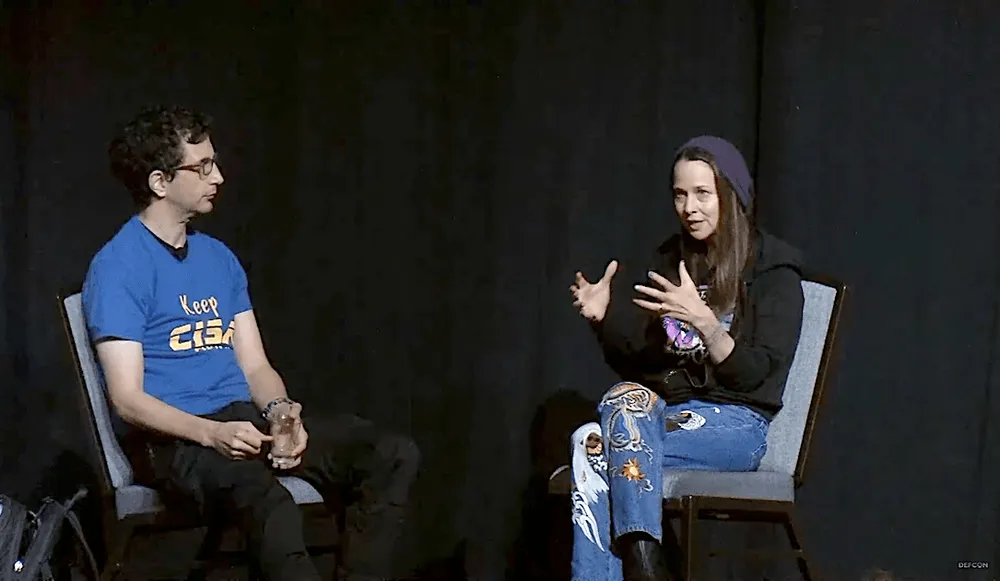Federal judge issues injunction limiting officials’ ability to control disinformation
A federal court says the Biden administration must rein in contact with social media platforms when trying to control what the court called protected speech, a decision that has broad implications for controlling the spread of mis- and disinformation in the 2024 election cycle.
A response to a lawsuit from two Republican state attorneys general, Tuesday’s decision strikes at the heart of officials’ ability to suppress the circulation of false information, which key administration officials have called the most significant threat to the looming election. The attorneys general held that the administration’s attempts to control mis- and disinformation undermines Americans’ First Amendment rights.
An alphabet soup of agencies’ efforts fall under the court’s preliminary injunction, including the Cybersecurity and Infrastructure Security Agency (CISA); the Justice Department; the Centers for Disease Control; and the Department of Homeland Security, among others.
Judge Terry Doughty in the Western District of Louisiana singled out public comments from CISA Director Jen Easterly, quoting a 2021 interview where she worried that society’s growing tolerance of “alternative facts, post-truth” is dangerous because people “get to pick their own facts.”
CISA did not immediately reply to a request for comment.
A Trump appointee, Doughty held in his opinion that Easterly’s comments are a violation of the Constitution’s free speech clause. The injunction does include some exceptions where federal officials can intervene. CISA, for example, can engage with social media companies to address malicious cyber activity as well as alert the platforms to “criminal” efforts to suppress voting.
Easterly has called disinformation an “incredibly difficult problem” and the single most grave threat to the 2024 elections. In an interview with reporters at the hacking conference DEF CON last August, she said that in visits with state election officials, including Ohio Republican Frank LaRose, she had been struck by their successful efforts to engage social media platforms to control election mis- and disinformation.
She praised Ohio for monitoring social media at the local level “looking for anything that could undermine the integrity of their elections.”
Easterly pointed to CISA’s Rumor Control website — which she said had been adapted from a Federal Emergency Management Agency effort — as an example for how she hopes CISA can support local officials without taking over their operations.
In the August interview, Easterly also acknowledged the precarious position she is in as a federal official trying to control disinformation. Calling herself a political independent, Easterly noted that she had voted for President George W. Bush before supporting President Joe Biden in the most recent election cycle.
“I have to figure out how to continue to position CISA to be an agency that doesn't get caught in the crossfire,” Easterly said at the time. “Where I fear that the system will break down in a spectacular way is if CISA all of a sudden becomes a partisan agency. And so that is the thing that I worry about the most.”
Easterly went on to say that she knows some local government officials are “inclined to be suspicious of me and the government.”
She also discussed how CISA approaches social media platforms, saying “what we don't want to be doing is monitoring social media.”
“We have partnerships with all sorts of entities and we do have discussions with platforms, but they're more to understand large trends, not things like specific tweets or specific things on social media,” she added.
Easterly went on to say that she believes that state election officials must be responsible for controlling disinformation “at the tactical level.”
Disinformation scholars lambasted the Doughty opinion, though some allowed there is room for improvement in how the government communicates publicly about its disinformation efforts.
“The government ought to be far more circumspect about wading into closed-door discussions with the private sector on speech-related issues, particularly when there’s no law being broken,” said Gavin Wilde, senior fellow in the Technology and International Affairs Program at the Carnegie Endowment for International Peace. “If there’s a national security imperative at issue, this very kind of partisan politicization — however unfounded — is unfortunately probably unavoidable.”
Wilde added that officials like Easterly “need to factor for that in their degree of transparency.”
Suzanne Smalley
is a reporter covering privacy, disinformation and cybersecurity policy for The Record. She was previously a cybersecurity reporter at CyberScoop and Reuters. Earlier in her career Suzanne covered the Boston Police Department for the Boston Globe and two presidential campaign cycles for Newsweek. She lives in Washington with her husband and three children.



